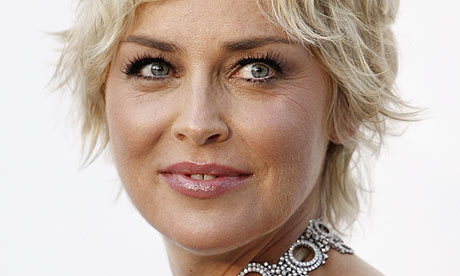
Sharon Stone says she's going to write some short stories, and I can already hear the giggles and sneers. And, of course, most actors can't write very well (except for Ethan Hawke, who's not bad, and Richard E Grant, who's pretty good), just as most writers can't act very well. But then, most writers can't write good short stories. When you write a short story, you are, as the literary critic Louis Menand says, performing a sort of magic trick. It's a very special skill. And who's to say that Sharon hasn't got it?
A short story, if it's to work, must turn on a single moment; it is, in essence a narrative about something that happens in a flash. This is usually the ending, and Menand says that it should be "an outcome that is both startling and anticipated." In a short story, it seems, one thing happens, and that thing, you suddenly realise, is both what you've been hoping for, and also what you've dreaded all along. Chekhov is probably the all-time master of the genre, but Hemingway and John Updike have come close.
All of this got me thinking about the film career of Sharon Stone. After her debut in 1980 (as "pretty girl on train") in Woody Allen's Stardust Memories, her movies were mostly forgettable until she bagged the role of the bisexual, thriller-writing icepick-killer in Paul Verhoeven's Basic Instinct. Lots of other actresses, it is said, turned down the role, on account of the nudity – Geena Davis, Meg Ryan, and Julia Roberts are, apparently, three of them.
Tramell is not a bad character – Stone plays her just right, in a way that is not quite realistic, because, let's face it, Tramell, like many characters dreamed up by screenwriter Joe Eszterhas, is not quite realistic. She is both mysterious and bullying, and manages to turn the passive role of being interrogated in a police station into an active one, which makes the interrogating officers flustered and anxious. And, as she gets ready to go to the police station, Paul Verhoeven, the director, hurls a piece of information at us – she's not wearing any knickers.
You know the rest. In the squadroom, she crosses her legs, revealing all. Those few frames made the movie a global hit. In interviews, Stone says she was aware of the nudity, but not that the shot would be so graphic. During a screening, she says, she got up, slapped Verhoeven, and walked out. "I did not think you would see my vagina in the scene," she said.
What does this sound like? It sounds exactly like a short story to me. A long, gradual build-up, followed by a single, defining moment about something that happens, quite literally, in a flash. A moment, what's more, that you've been expecting, and also sort of dreading, after which things are never the same.
Or are they? Soon afterwards, Stone played Robert de Niro's wife, an ex-showgirl called Ginger, in Martin Scorsese's Casino. She was magnificent – she was also nominated for an Oscar. After that, not much – not much, anyway, in the same class.
On this analysis, of course, she might have made a better short story writer if she hadn't gone on to make Casino. But you can't tell me that slow build-ups and sudden turning points haven't been on her mind for years and years. And I wonder, exactly, what she'll be writing about.

